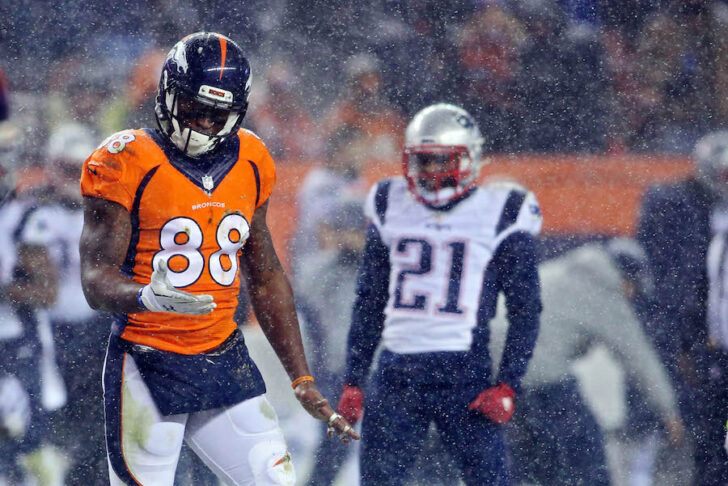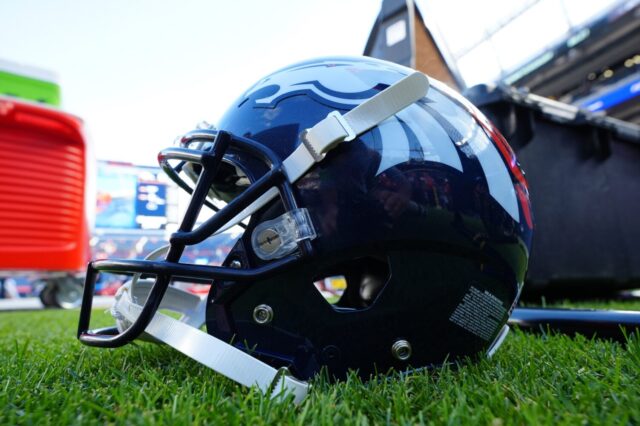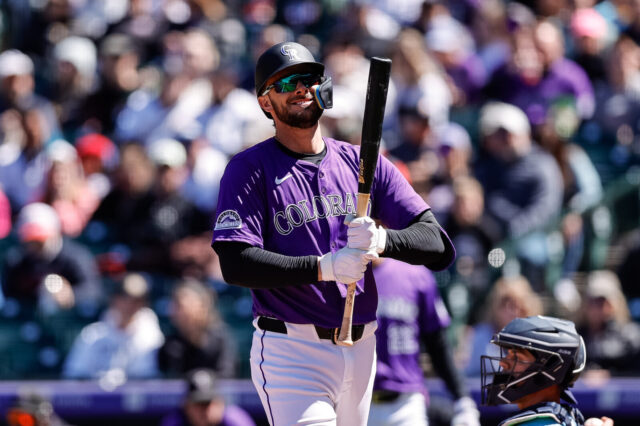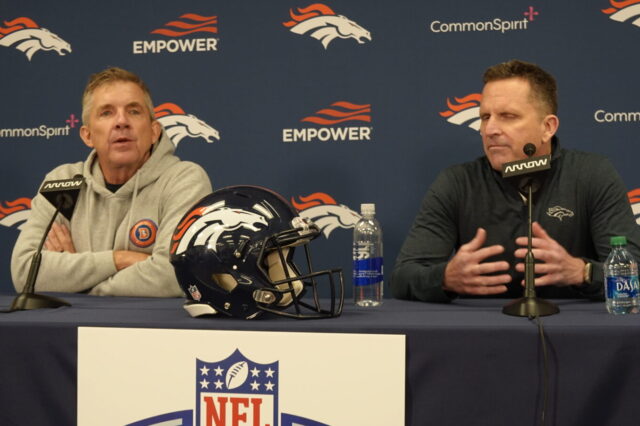There wasn’t much to be upset about following Denver’s win over the Patriots Sunday night. The defense was able to neutralize Tom Brady and the Patriots’ passing game and completely shut down the running game. Special teams generated a crucial turnover. The offense finally discovered a running game and Brock Osweiler delivered in the clutch.
Gary Kubiak’s team fought start to finish and never gave up. While the offense struggled to move the ball at times, there weren’t many glaring problems that frigid Sunday night at Sports Authority Field, except for Demaryius Thomas.
On a night when Osweiler needed his star receiver most, Thomas was non-existent (save for one catch in the fourth quarter). Non-existent may actually be an inappropriate description of Thomas’ night because everyone saw plenty of No. 88. What they saw was Thomas failing to get open and dropping ball after ball after ball.
Was it the snow, his mom’s newly acquired freedom, a new quarterback or a fear of the undefeated Patriots that distracted Thomas? Ultimately it doesn’t matter. Those things need to be checked at the door.
The drops are concerning – Thomas now has seven on the season – but what is more concerning is that Thomas is letting external factors affect his play on the field. It’s a problem that must come to an end. He’s become a head case, and that’s a bad trait for a $70 million dollar wide receiver.
Sunday’s one catch on a game-high 13 targets wasn’t the first example of DT failing to keep his head in the game.
For three quarters of the first Chiefs game this year, Thomas was playing awfully before finally waking up and helping the Broncos come back and win in dramatic fashion.
This is a trend that can be traced back even further on and off the field.
At the beginning of the 2014 season, Thomas appeared to be going through the motions during games. No one could figure out what was wrong; that was, until Thomas admitted his contract situation was on his mind and impacting his play.
Following Denver’s early exit from the playoffs last season at the hands of Andrew Luck and the Colts, Thomas made his rounds on radio row at the Super Bowl. What he said echoed the way he and his teammates played in the divisional round.
Thomas stated that players in Denver’s locker room didn’t want to travel to New England to play the Patriots in the AFC Championship game.
“You had guys always talking the night before the game, you had, ‘Oh, I don’t want to go to New England and play New England,’” Thomas said.
It didn’t stop there. Thomas continued.
“I feel like some guys, you know, didn’t have the fight or whatever it was.”
Those are disparaging comments coming from a team leader. Now, to be fair, Thomas never said he felt that way, but he was, at the very least, involved in those conversations. Shouldn’t Thomas be one of the leaders working to stamp out that attitude?
Admitting your teammates had the wrong attitude going into a playoff game is admirable, but Thomas should remember that attitude reflects leadership.
As the examples pile up, it’s hard to deny a trend. And it’s a costly trend. Denver can’t afford to spend $13-plus million on a wide receiver that can’t consistently keep his head in the game. It’s frankly unacceptable. If that sounds harsh, ask yourself this: How many employers find it acceptable when an employee’s job performance suffers due to external factors? None.
It’s becoming obvious that DT’s problems are between his ears, not the type of gloves he wears. Demaryius Thomas needs to figure out how to focus on football when it matters most, on Sundays. That means checking his baggage at that door on a weekly basis.



